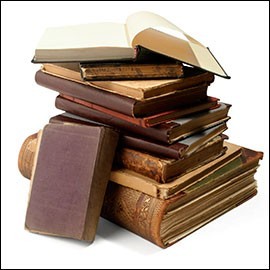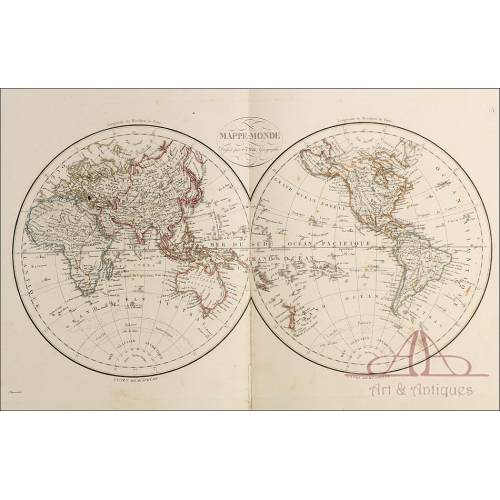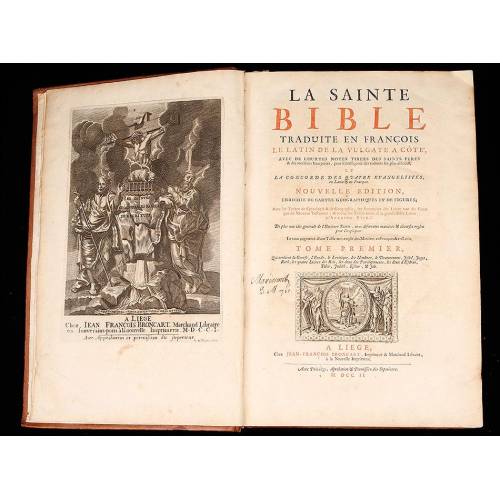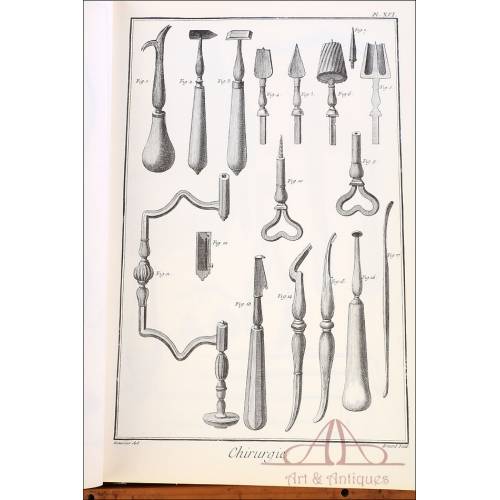Antique Books
An invention that changed the course of history.
The invention of writing is one of the highlights of human history. In fact, we can only speak of History precisely with the appearance of this resource to codify all kinds of data. Its origin is to be found in the cradle of civilizations that was the Fertile East or Middle East in general. Mesopo...
An invention that changed the course of history.
The invention of writing is one of the highlights of human history. In fact, we can only speak of History precisely with the appearance of this resource to codify all kinds of data. Its origin is to be found in the cradle of civilizations that was the Fertile East or Middle East in general. Mesopotamia and Egypt were the first peoples that began to leave written testimonies by means of cuneiform and hieroglyphic scripts, respectively. Gradually, the invention was popularized through contact with other civilizations. The great classical cultures, Greece and Rome, spread writing throughout the Mediterranean and much of Europe. In fact, the first great ancient books that have survived are often dedicated to the transcription of Greco-Roman works. Very close to us, in the European monasteries of the High Middle Ages, monks developed an intense copyist work that left us numerable incunabula and other compilations of ancient manuscripts. ancient manuscripts. ancient manuscripts .
The printing press multiplies the reach of culture.
In the 15th century, Europe was at the dawn of the Renaissance and the passion for learning and rediscovering the great intellectual treasures of the past was gaining momentum. In 1440, the German Johannes Gutenberg presented the invention that would once again change the way knowledge was transmitted. The printing press substantially reduced the time needed to copy a written work by means of a system of metal plates with embossed letters that made it possible to fill as many pages as desired. As could not be otherwise, classical thinkers were the first to benefit from the possibilities of this machine, multiplying exponentially the number of available copies of each work. Manuscript writing would not end here, but the printed book would prove to be a powerful vehicle for cultural dissemination in the following decades. For example, the success of the Protestant Reformation that began in 1517 cannot be understood without the publication of numerous printed books by the precursors and promoters of this movement. In addition to these religious controversies, the printing press would finally make it possible to speak of a universal literature, with the dissemination of works from all epochs and the decisive impulse to the publication of new books.
The great testimonies of our past
The collecting of antique books is not a novelty of our days. Throughout the centuries, kings, nobles, clergymen and characters of all kinds accumulated immense libraries as their main heritage. In our section corresponding to these singular pieces, it is possible to find three main categories:
- - Ancient books: this is the broadest category and includes works of all times beyond literature. Technical manuals, theological compilations, travel memoirs or statistical compilations from between the 15th and 19th centuries are preserved with deluxe bindings.
- - Ancient manuscripts: even more unique, manuscripts are smaller pieces but with a particular charm.
- - Incunabula: a very specific type of book that dates back to the beginnings of literary printing, in the 15th century. In fact, the term incunabulum refers to the fact that printed works were still in their cradle.
Antique Atlas with 42 Maps. Grand Folio. Complete! 1824 Antique Atlas with 42 Maps....
Superb atlas with 42 large-folio maps. Complete. Worthy of a cartography museum. Superb atlas with 42 large-folio...
SoldBible, 1703. Written in French. "La Sainte Bible traduite en François". Bible, 1703. Written in French....
Large French Bible of which two volumes of three survive. Period binding. Large French Bible of which two...
SoldFacsimile of the Book Collection of Plates about Sciences . France, Paris, 1965 Facsimile of the Book Collection...
Amazing facsimile with more than 200 original etchings. With images of sciences, liberal arts and mechanic arts. Complete. Amazing facsimile with more than 200...
Sold
New products
-

Antique ivory and silver plated stethoscope, late 19th century
Antique stethoscope from the late 19th century in silver-plated metal...
-

Vintage pendant with shell cameo of Jesús del Gran Poder, carved c. 1970
Vintage pendant with a shell-carved cameo of Jesus del Gran Poder, circa...
-

Antique Roman Style Gilded Silver Chalice with Paten. France, 1932
Antique Roman-style chalice in gilded silver with paten. France, 1932....
-

Beautiful Antique 18 K Gold Ring with 7 Natural Diamonds
Antique 18K gold ring with 7 natural diamonds. Delicate openwork design,...
-

Antique Silver Reliquary. José Vilaplana. Valencia, Spain. Circa 1920
Impressive repoussé silver reliquary by José Vilaplana, Valencia, c....
-

Vintage 18K Gold Ring with 7 Natural Diamonds
Vintage 18K gold ring with seven natural diamonds in floral setting....
-

Antique Silver Chalice. Enameled Crosses. Valencia, Spain, 1942
Spanish chalice from 1942 in solid silver, gifted by the Church of...
-

Antique Silver Chalice and Paten. Granada Spain, circa 1900
Spanish chalice in white silver with matching paten, handcrafted....
Specials
-

Set of 18 Albumen Photographs in Original Album. Egypt, 1899
Set of albumen photographic prints...







